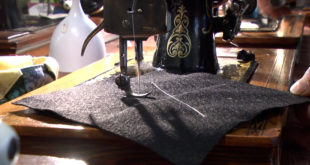LANSING, Mich. – Michigan will receive nearly $56 million in federal funds to continue its work to reduce opioid abuse and use, Lt. Gov. Brian Calley announced today.
“Opioid abuse is a national epidemic that is profoundly impacting so many families and individuals in communities all around the state,” Calley said. “These additional dollars provide invaluable support to Michigan’s initiatives to prevent opioid addiction, provide access to treatment for our residents who have become addicted, and continue to help them recover.”
The U.S. Department of Health and Human Services Substance Abuse and Mental Health Services Administration notified the Michigan Department of Health and Human Services that the state is being awarded $27,914,639 grants this fiscal year and next fiscal year to support its opioid response.
Grant dollars are for use from Sept. 30, 2018, to Sept. 29, 2020. Annual funding is broken down by category, with more than $15 million for treatment, more than $7.5 million for prevention, and more than $3.7 million for recovery. Key initiatives by category include:
Prevention:
- Training physicians in addiction medicine.
- Training physicians in opioid-prescribing practices.
- A public awareness campaign.
Treatment:
- Increased use of peer supports, which provide for people undergoing treatment to be supported by others who have previously been treated for substance use.
- Expansion of jail-based services for people addicted to opioids.
- Expansion of telehealth-based services, which involve delivery of health education using technology such as smart phones and video conferencing.
Recovery:
- Expansion of recovery housing.
- Employment training for residents ages 18 to 25 who are addicted to opioids.
- A 24-hour-a-day peer support line.
“Addressing the opioid epidemic is a priority of MDHHS and all of state government,” said Dr. Eden Wells, chief medical executive for MDHHS. “It requires partnerships at the federal, state and local level. We will continue to make a difference in the lives of Michigan families touched by opioid addiction with these federal dollars.”
Michigan previously received $32 million in federal funds to help reduce opioid use and abuse across the state through the State Targeted Response to the Opioid Crisis Grant.
The impact of the opioid epidemic is illustrated by new data on opioid overdose deaths in Michigan released on Thursday. Preliminary 2017 data from MDHHS reveals that of the 2,729 overdose deaths in Michigan in 2017, 1,941 were opioid-related. That compares to 1,786 opioid overdose deaths in 2016 and 1,320 in 2016.
The state is using every available tool to combat the opioid epidemic. The collaborative efforts of state agencies amplifie Michigan’s efforts related to prevention and treatment of patients, education of health professionals and enforcement of over-prescribers.
Efforts include:
- Providing online resources for patients, health professionals and communities about prevention and treatment of opioid abuse.
- The Michigan Automated Prescription System provides real-time prescription data and resources to better assess a patient’s risk for substance use disorder.
- Assistance with proper drug disposal of unwanted medications.
- Michigan State Police posts serving as drug-take back sites and providing the Angel Program for individuals struggling with addiction.
In addition, Michigan issued a standing order in May 2017 to pre-authorize the distribution of naloxone by pharmacists to those at risk of an opioid-related overdose, as well as family members, friends and other persons who may be able to assist a person at risk of overdose. Naloxone is a fast-acting, potentially life-saving medication that reverses opioid overdose.
Since it was issued, more than 60 percent of Michigan pharmacies have registered to dispense naloxone under the standing order. Pharmacies across the state have dispensed 10,328 orders of naloxone; 3,374 through the standing order and 6,954 through prescriptions from physicians.
For more information about opioids and steps residents can take to protect themselves and their loved ones, visit http://www.michigan.gov/stopoverdoses.
 Keweenaw Report Your Source for Local News and Sports
Keweenaw Report Your Source for Local News and Sports





